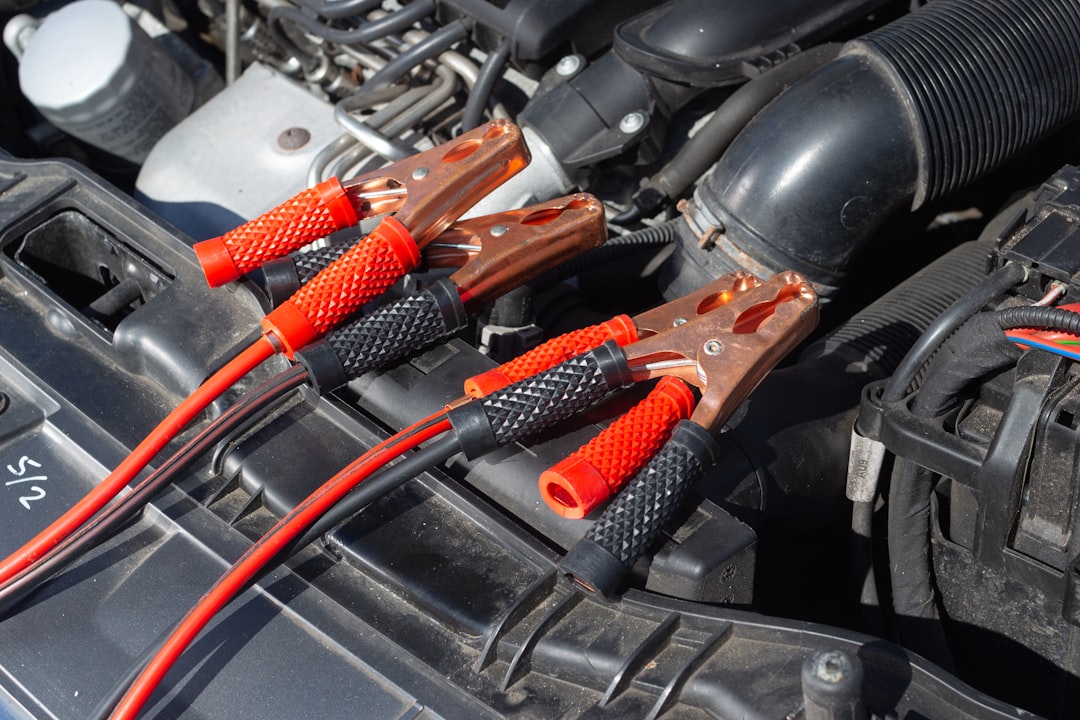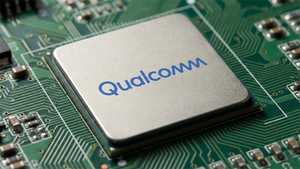 Photo from Unsplash
Photo from Unsplash
Originally Posted On: https://wefixdieseltrucks.com/what-are-the-most-common-diesel-repair-problems/
There are around 7 million diesel vehicles registered in the U.S, and diesel engines make up about 10% of all pickup truck registrations. If you’re one of those who prefer diesel engines over traditional ones, it’s important to be as knowledgeable as possible on the topic. After all, not every mechanic or auto shop is qualified to work on diesel engines.
Diesel engines are generally reliable, but any vehicle can break down or stop working efficiently. Diesel repair provides a unique set of issues from traditional vehicles. Continue reading below to learn some of the most common diesel repair problems and their potential solutions.
Diesel vs. Gas Vehicles
Before learning about the most common diesel repair options, it’s important to understand the difference between diesel and gas-powered vehicles. Although the two serve the same purpose, they function quite differently. This difference in engines means they’re prone to different mechanical issues.
Both gas and diesel engines are internal combustion, meaning they convert chemical energy into mechanical energy. A series of small explosions help turn fuel (gasoline or diesel) into energy for the vehicle to run.
In a gasoline vehicle, spark plugs are used to ignite the fuel. In a diesel vehicle, there is no spark plug. Instead, combustion happens when oxygen-rich air is introduced to the fuel and compressed until that specific model’s combustion point.
Fuel Differences
It isn’t only the engines that are different, but also the fuel. Although diesel and gasoline begin as crude oil, they’re separated during the refining process.
Diesel fuel is thicker and has more energy density than gasoline. Diesel engines have about 20% more thermal density than traditional gasoline, which allows these engines to receive a better fuel economy. In other words, diesel produces more energy for the engine to run on than the same amount of gasoline would.
Difficulty Starting or Doesn’t Start at All
There are nearly an infinite number of reasons why your diesel engine may have difficulty turning over or can’t start at all. For example:
- Incorrect weight viscosity of diesel lubricants
- Broken solenoid
- Clogged fuel injector lines
- Dead battery
- Bad battery connection
- Too little (or no) fuel
- Bad fuel filter
This list is far from exhaustive. However, since there are so many reasons your diesel engine might be challenging to start, this is almost always a job for a diesel repair shop.
The Solution
When your diesel engine is challenging to start or won’t turn over, your best bet is to get a diesel engine repair service as soon as possible. Of course, before you do that, you could try jumping the battery. However, even then, the battery or connections may need replacement.
Engine Overheating
Engine overheating is one of the most common problems with these types of vehicles. When a diesel engine overheats, it’s because the engine has been pushed too hard. When this happens, it can quickly cause a host of other serious problems.
For example, an overheating engine can cause damage to the bearings and crankshaft, meaning they’ll need replacement. In addition, the pistons can end up expanding and scraping the cylinder walls, where it’s possible to crush the head gasket in the process. Your vehicle’s cylinder heads can also be irreparably damaged.
The Solution
If your diesel engine is overheating, it could be a defective coolant sensor, fan motor, or engine thermostat. But, it could also be an inadequate amount of coolant or antifreeze.
Start by checking your vehicle’s coolant levels, if you can reach them and know where they are. If the levels are low, top it off appropriately (to the fill line) and try starting the engine again. If it runs fine, then there’s no need to worry.
However, if topping off the coolant doesn’t solve the problem, or the truck is overheating with normal fluid levels, you should take it to a mechanic.
Black Exhaust Smoke
Some people may find this common problem surprising since diesel vehicles (especially diesel pickup trucks) have become known for their exhaust smoke. While the process used by spark-ignited internal combustion engines can produce a little smoke, it shouldn’t make significant amounts of it. That smoke also shouldn’t be black.
Several things could be to blame for excessive black exhaust smoke. A clogged air filter, a broken injector, and the injector pump are often to blame. Other causes might include a faulty turbocharger, or a broken EGR calve.
The Solution
If your diesel engine omits black exhaust smoke, it’s generally necessary to take it to a diesel repair shop. One or more parts will likely need to be replaced, depending on the smoke’s root cause. Since there are so many potential causes, diagnosing the issue would be challenging for anyone not trained in diesel engine mechanics.
Oil Oxidation
Oil oxidation happens when a diesel vehicle sits too long or isn’t driven regularly. Oil oxidation is a process where the addition of oxygen changes a chemical substance. The browning of an apple when it sits for too long or the rust on metal after exposure to the elements are prime examples of oil oxidation.
While there’s no way to prevent oil oxidation from happening, routine maintenance can slow the chemical changes in motor oil. The most important thing is to get your oil regularly changed.
If your oil has oxidized, it can cause deposits and sludge to form. This reduces the efficiency of your engine and increases the risk of engine failure. Accelerated degradation of oil is another sign which causes you to change your diesel vehicle’s oil more regularly.
The Solution
The best solution for oil oxidation is to have your oil and filter changed. If ongoing oxidation has caused other issues, those will also need to be addressed before your engine runs as clean as it should again.
If your diesel has a lot of miles, you may want to consider using a higher quality oil meant for high-mileage engines. Using oils that contain high-quality oxidation inhibitors can also slow the process down and help you get more miles out of each oil change.
Contaminated Fuel
Since diesel is thicker than gasoline, it’s more prone to contamination issues. Diesel fuel is easily contaminated by various foreign substances, including soot, glycol, and moisture.
If your fuel has been contaminated, you might run into a host of different problems. The first thing you’ll likely notice is that your vehicle’s performance has started to decrease. Eventually, the engine’s performance will start to decrease drastically and quickly if the problem isn’t resolved.
Various essential engine parts can also break if your vehicle is trying to run on contaminated fuel. If left without repair, this can cause a chain reaction where broken parts cause other parts to break. Eventually, the engine can be damaged beyond repair and will need to be replaced entirely.
The Solution
Emptying or cleaning the fuel and the tank is the only way to repair the contaminated fuel issue. Several different methods might be used, depending on several factors.
Contaminated fuel should be cleaned or emptied at a diesel repair shop, as the process can be complicated. During the process, you must be extra cautious not to allow residual debris to fall into the tank and proper disposal of associated chemicals (including fuel) is crucial.
Faulty Lead/Acid Storage Battery
The lead/acid storage battery is a crucial part of the starter system in a diesel vehicle. When this battery is faulty or broken, the vehicle isn’t able to start properly. If your vehicle is having problems starting, this might be the reason.
The Solution
Replacement of the lead/acid storage battery is generally warranted if something is wrong with your vehicle’s current one. Any repair shop with experience working on diesel engines should be able to replace this for you. As long as there are no other issues, this should be a fairly routine and quick repair.
Loud or Unusual Noises
If you’ve ever driven a diesel or passed one on the road, you know that they’re naturally louder than gas-powered cars or trucks. However, excessive or unusual noises could signal a serious engine problem. The type of problem likely to blame depends on what kind of noise is being produced.
For example, a rattling noise could mean something in the engine is loose. The engine brackets could even have come loose, which is a serious problem needing immediate attention.
If you hear a loud knocking noise, it might be a problem with the fuel injectors. Issues with fuel injectors can cause an improper compression balance that reduces your engine’s overall performance.
The Solution
Loud or unusual noises should be inspected by a diesel mechanic as soon as you notice the problem. The longer this type of issue goes without repair, the more expensive it’ll potentially be.
When To Seek A Diesel Engine Repair Service
Anytime your diesel vehicle isn’t working properly, you’ll want to take it to a diesel repair shop. Diesels are complex engines that you don’t want to try fixing on your own unless you’re a mechanic trained in this type of repair.
Diesel engines are also significantly more expensive than their traditional counterparts. Letting an issue go until your truck no longer runs could spell financial disaster, whereas fixing a problem as soon as it happens will be much more affordable.
When seeking diesel engine repair service, be sure to use a shop that knows what they’re doing. Not every mechanic or auto shop is trained to work on diesel engines, so be sure to do your research before taking your diesel vehicle somewhere to be repaired.
How To Choose A Shop For Your Diesel Engine Repair
Choosing the right shop for your diesel engine repair service is crucial. As previously mentioned, not every mechanic or auto shop is competent in diesel engines. When choosing a shop for your diesel repair needs, look for the following things:
- Experience in diesel engines specifically (and, preferably, a shop that only works on diesel engines)
- A shop with a good reputation and positive online reviews
- Somewhere that only employs certified mechanics
- A shop that offers some type of warranty policy on the work they do
- Fair rates and obvious pricing policies that are on par with your location’s average costs
- Employs modern diagnostic software to determine the exact problem with your diesel engine
- Employs active listening when you describe the problem and willingly answers any questions you have
- Customer service representatives or technicians are friendly and professional
- A shop that provides all the services you might need for your diesel engine, so you don’t have to go to multiple businesses for service
- Clean, well-staffed service area
- Shop’s location is reasonably close to your home or work, so you don’t have to travel too far when needing repairs
- The shop is easy to get a hold of and (preferably) offers several potential communication methods
You can feel confident having your truck worked on if a shop meets all the expectations above. Avoid shops that don’t meet all of these qualifications because they may not truly be qualified to work on your diesel engine.
Do You Need Diesel Repair in California?
Millions of people choose to drive diesel engines over traditional options. However, these engines require specialized diesel repair from reliable diesel repair shops.
If you need diesel repair in California, call Diesel Performance Specialist at (916) 652-9457 or fill out the online contact form today. Our reliable team of expert diesel mechanics are ready to get your vehicle back in top shape.





